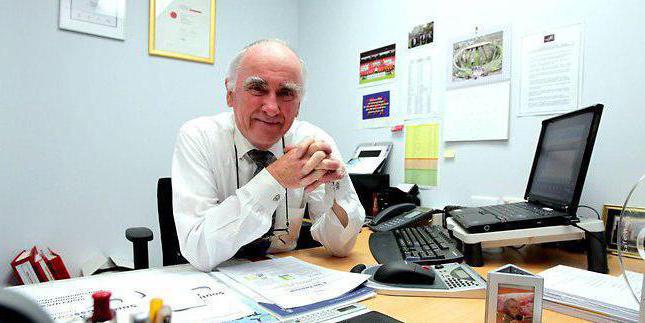When they reach retirement age, many people begin to wonder: is it really needed, a well-deserved rest, and is it worth it to finish working? What are working pensioners in Russia entitled to and what are they losing? Let's try to figure it out.
Insurance pension: terms of appointment
First of all, it should be noted that no one can and, contrary to rumors circulating, is not going to deprive those pensioners who continue to work after retirement of honestly earned payments. Recall that the old-age insurance pension that the bulk of the elderly receive is accrued under the following conditions:
- If a person has reached a certain age. These are sixty-year-old men and fifty-five-year-old women.
- Minimum length of service. If earlier it was enough to work out just five years, then after the reform of 2014, the minimum length of service increased to six and will increase annually by one year until it reaches fifteen years.
- IPK (pension coefficient) should be above the minimum value. Now it is 6.6, but every year it will grow until it reaches 30 IPC.

What is included in the pension?
Working pensioners, as well as those who have stopped their employment, receive a two-part pension. One of them is a fixed payment, which is an analogue of the basic pension. Since this year, its size is 3935 rubles. The second is the actual insurance pension. Its value depends on the length of service and the number of points (IPC), which are calculated based on the size of contributions made to the Pension Fund, that is, actually earned pension. It should be borne in mind that if the resulting pension payments are lower cost of living region, then working pensioners have the right to rely on a social increase.

Accrual procedure
Since he continues to work, the seniority of a working pensioner is increasing. In addition, each employer makes insurance payments for all its employees, regardless of their age. Thus, it creates the need to annually recalculate pensions for working retirees. The allowance is calculated based on the amount of contributions made by the employer for a certain period of time. As a rule, this process takes place without the participation of a pensioner, that is, the Pension Fund automatically recalculates the insurance pension. This happens on August 1st.

There is also a declarative recalculation of pensions. He assumes that working retirees can refuse automatic recalculation and independently submit an application. It should be borne in mind that such an opportunity appears only a year after the pension has been assigned. Such actions make sense if, for example, a pension was granted on January 15, 2015. According to the statement of the working pensioner, it will be possible to recalculate the pension on January 16, 2016. An unauthorized recalculation will be made only on 08/01/2016.
Fixed Payment Allocation
Working retirees can apply for a fixed payment allocation. This can be done in the following cases:
- In the event of a change in the number of disabled family members. If a pensioner is dependent on the disabled (not more than three are taken into account), then he will be charged an increased fixed payment for both old-age and disability pensions.
- In the case of living in the Far North, the fixed payment increases by the amount district coefficient for the entire stay.
- If a citizen has acquired the necessary calendar work experience in the Far North.
Limitations for premiums
Despite the fact that the law on working pensioners does not refuse to pay pension benefits, there are some restrictions. Under the new bill, it is supposed to refuse to pay pension benefits to those working pensioners whose total wages for the year are more than one million rubles (according to statistics, this is about one and a half percent, that is, just over two hundred thousand). The decision will be made based on the final annual data. To date, it has been decided to postpone such measures for another year, that is, in 2016 working pensioners will still receive their full pension, but in 2017 this bill may come into force. In addition, only those working pensioners whose salary does not exceed 18,000 rubles can count on an increase in the pension.

Also, the Pension Fund has introduced a system of restrictions under which it is necessary to have at least 30-40 years of work experience in order to receive a decent pension. If, at the time of retirement, a person did not work out such a period, then, continuing to work, for some time he cannot count on an increase in pension payments.
In addition, restrictions on allowances have been introduced depending on the availability of the funded part of the pension:
- if it is not formed, then the maximum amount by which the pension payments of a working pensioner can increase will be no more than 3 points;
- if the funded part is formed, then the number of points that will be taken into account when recalculating is 1.875.
When an increase is made to working pensioners
In addition to the above, pension recalculation is carried out in the following cases:
- if the pensioner is 80 years old - in this case, the insurance part is recalculated, which includes the surcharges established in the region;
- if the disability group has changed;
- if a child receiving a survivor's pension loses the second one, then his pension increases.
In order to fill out these allowances and recalculate, you must submit an application. The exception is only the achievement of 80 years of age. In this case, recalculation is done automatically.

Pension reform also involves a certain allowance for deferred pension. It will be expressed in an increase in the coefficient and a fixed payment for each year of work after reaching retirement age, subject to the refusal of pension payments.
Pension indexation in 2016
The difficult economic situation in the country and high inflation mean annual indexation of pensions. This issue has become one of the most discussed in the government. Finally, it was decided to index pensions in February next year. Despite the fact that the statement that indexation should cover price increases is enshrined in law, the pension will be indexed at 4%, while the expected inflation rate is projected to be 6.8%.

However, these changes will not affect all pensioners. Only payments to non-working citizens will be indexed. Pensions to those pensioners who continue to work will not be indexed, that is, they will remain at the same level. This fact is explained by the fact that working pensioners do not have an insured event. Immediately after its occurrence, that is, the termination of employment, pension benefits will be indexed.
